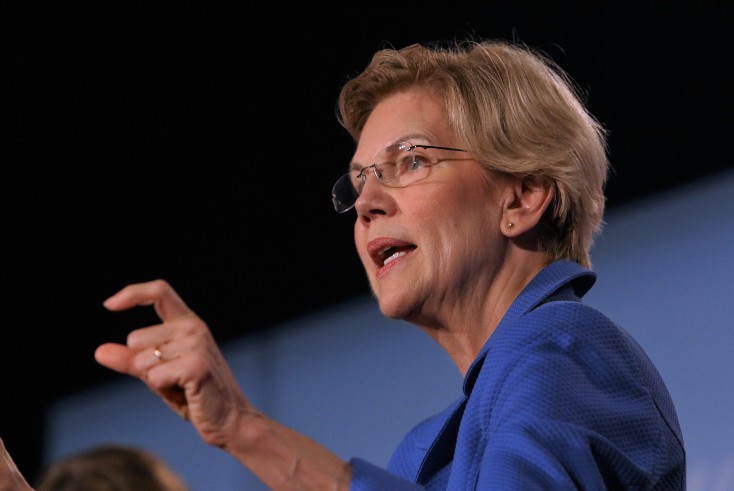Why are US lawmakers threatening to reverse the Warner Bros Discovery merger?

In a letter written to the US Department of Justice (DOJ) on Good Friday, legislators in the US urged the law enforcement body to re-examine the merger between WarnerMedia and Discovery that led to the creation of Warner Bros Discovery.
The letter, signed by Democrats Senator Elizabeth Warren and congresspeople Joaquin Castro, Pramila Jayapal and David Cicilline, argues that a year after the merger, Warner Bros Discovery has adopted “potentially anticompetitive practices that reduce consumer choice and harm workers in affected labour markets.”
The same group of legislators had expressed similar concerns in December 2021, ahead of the merger, in a letter co-signed by a further 29 congresspeople.
Now, they are asking the DOJ to “reassess” the merger. Doing so would create the potential for a de-merger should the DOJ seek to take action.
The increased market share created by the merger has enabled the company to harm workers and heighten barriers to entry in the industry, the group writes. They cite numerous labour-force reductions and product cancellations, including the controversial binning of Batgirl while it was deep into post-production, as well as the dissolution of CNN streaming service CNN+, which resulted in layoffs affecting 350 employees.
Additional cuts in the ad sales department and at CNN, which have occurred as part of broader business restructuring, were accused by the legislators of “hurting the broader ecosystem of journalism”.
The layoffs and cancellations have occurred amid a backdrop of the company handling in excess of $50bn in debt. The company’s debt concerns have been exacerbated by rising interest rates, which affect the interest payable by companies to their creditors and reduce expenditures on new projects, as well as the ongoing shift in consumer habits toward streaming TV and film content.
Speaking to The Media Leader in August, independent industry analyst Brian Wieser estimated that streaming is a 20% margin business, which is much slimmer than the higher margins seen in legacy models. He suggested companies like Warner Bros Discovery are gambling that they will be able to sufficiently grow their userbase in new markets globally via streaming to make up for the comparatively lower revenues, and work to pay off debt.
Cuts in content, while often bemoaned by fans and entertainment professionals, have been viewed by analysts as positive business measures. Warner Bros Discovery lost over $2.6bn on its streaming services in 2021 and 2022, but has recently signalled a shift that it is seeking a quicker turn to profitability.
But the tumultuous past year for Warner Bros Discovery has risked harming the company’s brands and drawing the ire of antitrust hawks like Senator Warren. A class-action lawsuit brought in September further alleged the company of misleading shareholders with regard to its streaming business.
The lawmakers’ letter reads: “WBD’s aggressive measures post-merger indicate that current competition in the media and entertainment industry is inadequate. The company has the incentive and ability to eliminate broad swaths of its workforce, leaving workers with fewer choices for employment and advancement.”
The legislators further decry the “hollowing out [of] an iconic American studio”, such as by removing 68 titles from streaming service HBO Max. The letter accuses the removal of shows a “de facto ‘catch and kill’ practice” in its effect on limiting consumer choice.
The letter also raises concerns over Warner Bros Discovery’s plans for its new combined streaming service, titled simply ‘Max’. Executives from the company are expected to unveil plans for the new service on Wednesday. It is anticipated to cost $10 a month for an ad-supported plan and between $15-$16 a month for the ad-free plan. In addition, a new plan offering added features and “higher quality” is reported to cost $20 a month.
HBO Max currently costs $9.99 a month with ads and $15.99 a month without ads; Discovery+ costs $4.99 a month with ads and $6.99 a month without ads.
The legislators raise concerns about “questions unanswered about whether a lower-priced platform will have reduced quality from the current product—while consumers are paying the same price and lack the transparency necessary to fully evaluate the plans and their relative prices.”
The issue is echoed by recent changes made by other companies in their creation of ad tiers. Netflix, for example, only offers a screen resolution of 720p (the lower end of standard high-definition) on its Basic With Ads tier.
However, Warner Bros Discovery’s business challenges last year gave rise to the idea that the company may eventually have to seek a further merger. The Hollywood Reporter reported in September industry observers expect an eventual merger between Warner Bros Discovery and Comcast’s NBCUniversal, though such rumours were strongly denied by representatives at both companies.
By showing renewed opposition to the Warner Bros Discovery merger, however, Democrat lawmakers in Washington are signalling their continued opposition to further conglomeration of media.




